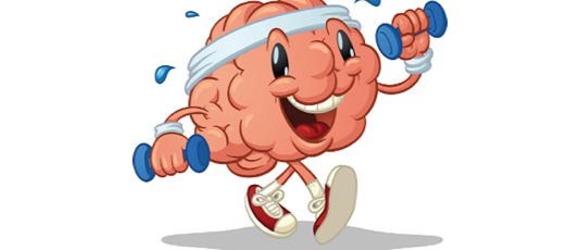
Boost Brainpower In the Classroom
"What we know from science is that exercise is probably the most powerful drug we have for the brain," advocates Dr. John Riley, associate professor of psychiatry at Harvard University.
For years there have been mounting concerns from parents and teachers over children's increasing inactivity levels and the risk that poses to physical and mental health as well as learning.
And their concern is well founded. Over the last 15 years research has been mounting that indeed, exercise for children stimulates brain growth and boosts cognitive performance. Further, studies have been conducted on kids, and the results suggest that aerobic exercise can make kids more focused and less impulsive.
Here is some of the most compelling support to this premise.
When children have been challenged with cognitive tasks that require lots of concentration and attentional control, individuals with higher aerobic fitness have performed with more accuracy, and sometimes faster reaction times as well. (Moore et al 2013; Wu et al 2011; Voss et al 2011; Hillman et al 2009).
Fit children also showed distinctive patterns of brain activity. For example, when school children were asked to view some images of animals and make quick judgments about them ("Is it a cat or a dog?"), physically fit kids had faster reaction times, and their brains showed evidence of more extensive processing during the task (Hillman et al 2005).
One research experiment found that 13 weeks of aerobic exercise was also linked with improved math skills and increased activity in the prefrontal cortex, a brain region associated with attention, planning, and resisting distractions. (Davis et al 2011).
Similar results were found when Keita Kamijo and other researchers randomly assigned 20 children (aged 7-9 years) to an after-school exercise program, kids who got 70 minutes of moderate to vigorous physical activity each day showed improvements solving tasks that taxed executive control and working memory (Kamijo et al 2012). Kids in a control group did not.
So if physical fitness is good for the mind and the body there are two good reasons to encourage children to exercise. BUT, here-- is a small but important point--exercise should be fun!
What aerobic exercise does your child really enjoy? Structured group activities such as dance lessons or team sports may be a good option, but it doesn't need to be that complicated. Nature walks,climbing on jungle gyms, and playing hide-and-seek are even better options for some children. They are more self--regulated.
Play--like exercise--is good for the brain. Playful experiences are learning experiences as most play involves exploration, or investigation.
Play is self-motivated and fun and there is evidence that kids treat play as a learning opportunity for coping with real life challenges.
Perhaps the most effective exercise for children is free, unstructured physical play. Allow time for this in your child's life and encourage it. The benefits, as seen from research cited above, are remarkable.